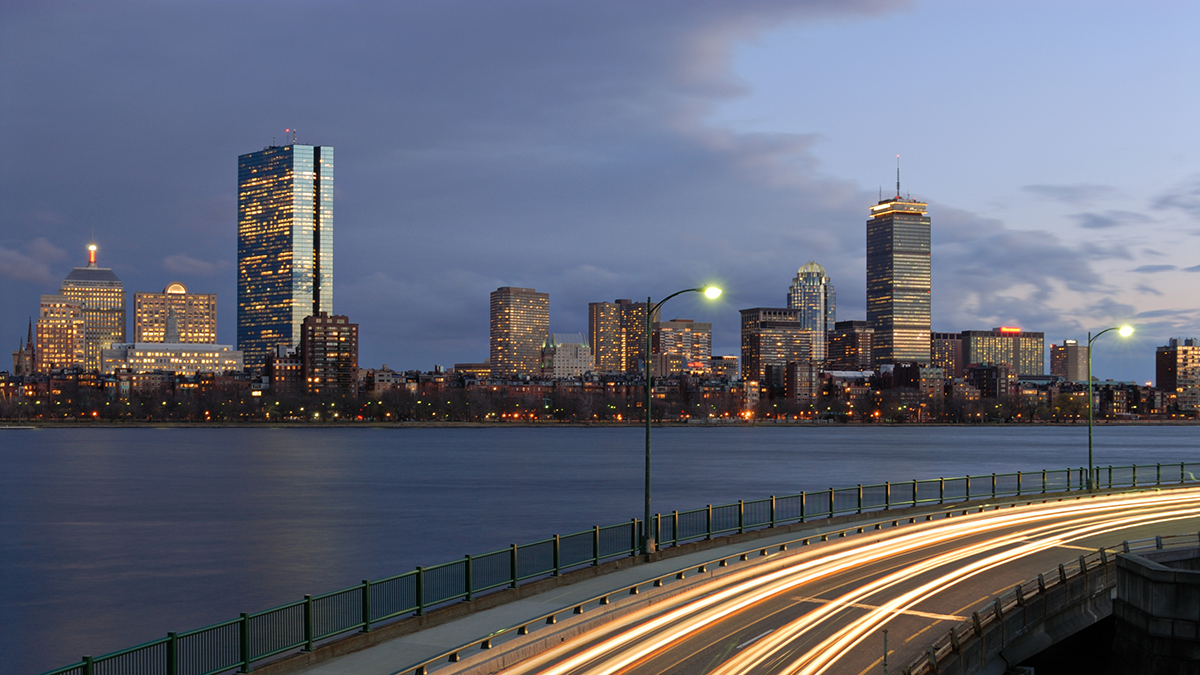BU URBAN Prepares Students to Tackle Environmental and Climate Challenges.

BU URBAN Prepares Students to Tackle Environmental and Climate Challenges
The multidisciplinary, university-wide program brings faculty, staff, and students together to drive real-world change through private and public partnerships.
The global urban population has grown rapidly over the last several decades, and by the year 2050, 68 percent of the world is expected to live in cities. With this increased urbanization comes a number of environmental health and climate concerns, including elevated levels of water and air pollution, extreme weather, and disease spread.
The Boston University Graduate Program in Urban Biogeoscience and Environmental Health (BU URBAN) is designed to prepare PhD students at BU to tackle these urban environmental challenges. Throughout the program, students not only receive interdisciplinary training inside of the classroom, but they also learn about the inner workings of city government and the importance of communicating clearly with lay audiences through partnerships with government agencies, non-government organizations, and the private sector.
“Our goal is to develop a new cadre of scientists who can do work that matters for the real world,” says Jonathan Levy, professor and chair of environmental health at the School of Public Health and associate director of BU URBAN. “Whether they go into academic or non-academic settings after they graduate, we want to show our students how they can have an impact beyond the ‘ivory tower’ and have their research truly make a difference.”
Since its founding in 2017, BU URBAN has worked to bring faculty, staff, and students together from across the University to drive change. Core faculty and student trainees come from the Departments of Biology, Earth & Environment, Environmental Health, and Mathematics & Statistics, and affiliated staff members represent a range of departments and centers at BU, including the Initiative on Cities and BU Sustainability.
“Real-world environmental challenges are complex, and they require people from multiple disciplines to work together to solve them,” says Pamela Templer, professor of biology and director of BU URBAN. “A University-wide approach is important for supporting our work because it allows us to break down barriers to working across departments so we can share expertise, learn from each other, and come up with sustainable solutions for our cities.”
Levy hopes that BU URBAN can be an example of how the University can reframe how PhD training, which can often be stereotyped as needing to be narrowly focused on a singular topic, is conducted.
“We are trying to demonstrate that you can train students to have both depth and breadth, and that they can be masters in their own discipline while still reaching out to experts in other disciplines to learn from them,” he says. “If we’ve learned anything from the COVID-19 pandemic, it’s that you can’t anticipate what problems are going to come and what sets of expertise you are going to need to address them. We want to train flexible learners who aren’t afraid to work with people in adjacent disciplines to solve new problems.”
Doctoral student and trainee Beth Haley, who studies water pollution and sewage overflows, says that the opportunity to work closely with researchers who have studied similar environmental issues from different angles, as well as with community members who face these issues every day, has been an exciting part of her experience in the BU URBAN program so far. “These issues are complex,” she says. “They don’t exist in silos, and neither should our research.”
Additionally, SPH and BU URBAN alum Lindsey Butler (SPH’15,’21), who currently serves as the Deputy Chief of Policy in the Boston Mayor’s Office, says that her time in the program allowed her to develop a more holistic framework for how she thinks about public health. “When you study the environment that makes someone sick, it’s so much more than pollutants; it’s their experience with racism. It’s the fabric of their community. It’s their economic situation. It’s their educational opportunities. It’s not just one thing,” she says.
BU URBAN is funded by a five-year National Science Foundation Research Traineeship grant, and as the program heads into the later years of the grant, Levy says they are still working though what the next evolution of the program will look like. However, one thing is for sure: he hopes they can show the wider University that making connections across departments can provide a strong foundation for something that is both sustainable and expandable in the long term.
And, as SPH aims to advance its strategic research directions around areas of critical public health need—including climate, the planet, and health; cities and health; infectious diseases; health inequities; and mental and behavioral health—Levy highlights that the expertise that trainees in the BU URBAN program gain through their additional coursework and co-curricular activities are an asset to this mission, the Department of Environmental Health, and the School, as a whole.
“From managing green space and developing sustainable transportation strategies to tackling environmental injustices and mitigating the challenges of climate change, our students and faculty are driving change in several of these research areas, and it is really exciting to be a part of,” he says.
Comments & Discussion
Boston University moderates comments to facilitate an informed, substantive, civil conversation. Abusive, profane, self-promotional, misleading, incoherent or off-topic comments will be rejected. Moderators are staffed during regular business hours (EST) and can only accept comments written in English. Statistics or facts must include a citation or a link to the citation.